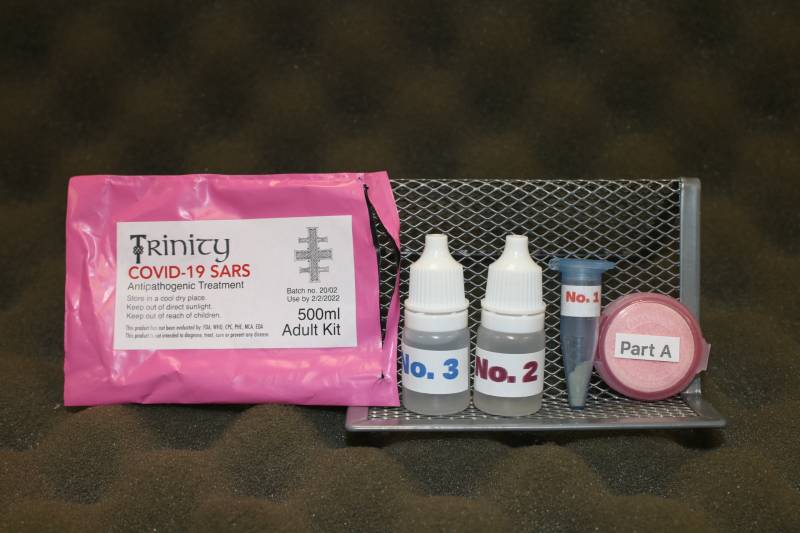Scammers looking to profit from those anxious for their stimulus check; inflated prices for desperately needed masks; fake coronavirus cures.
Watch Out for These Coronavirus-Related Scams

Officials say these are just some of the cons and illegal attempts at cashing in on the current devastating health emergency.
“We’ve really seen a wide variety of scams,” said U.S. Attorney Nicola Hanna. “As hard as we all work for our money, these folks work equally hard to steal our money. They’re very inventive.”
Hanna oversees the Justice Department’s district office in Los Angeles, which covers seven counties and 20 million people. The office recently charged a man arrested by an undercover FBI agent for allegedly soliciting investors with a fake coronavirus cure, and another man from the U.K. for allegedly importing a fake COVID-19 treatment in mislabeled packages.
But that’s just the beginning. Hanna warns of solicited donations by fake charities and GoFundMe pages, as well as people selling coveted protective equipment like safety masks they don’t actually have.
“We’ve seen phishing emails that purport to be from the Centers for Disease Control or the World Health Organization or other legitimate organizations,” Hanna said. “They’re not. And in fact, if you click on the link, it downloads malware onto your system.”
The IRS is warning people looking for their $1,200 government stimulus check not to give out personal information over email or the phone. And there is no proven vaccine or antiviral treatment for COVID-19, so anyone claiming to have a coronavirus cure is lying.
Not all of these are small-time consumer scams. As governments and hospitals across the nation desperately hunted for protective equipment, SEIU-United Healthcare Workers West announced on March 26 that it had found a supplier with 39 million protective masks for its members. But the deal fell apart after officials couldn’t verify and inspect the masks. Kaiser, which had placed an order for millions of them, said it learned the supplier never had them at all, the Los Angeles Times reported.
Selling Bogus Coronavirus Treatments
Keith “The Real Iron Man” Middlebrook had described himself to his roughly 2.4 million Instagram followers as a “Genius Entrepreneur Icon,” and “Actor Writer Producer,” among other things, according to a federal affidavit prosecutors provided to KQED.
Then around March 24, as the coronavirus pandemic ground life to a halt in California, the businessman, bodybuilder and actor who appeared briefly in “Iron Man 3,” “Moneyball” and other movies, crafted a new career: “Inventor: COVID19 Immunity & Coronavirus Cure.”
Middlebrook’s social media feeds, usually featuring videos of him sculpting softball-sized biceps or promoting his self-help regime of “xccelerated success,” with praise for Donald Trump sprinkled in, gave way to a new pitch touting an injectable cure for COVID-19 and pills to prevent a person from acquiring it. According to the affidavit, Middlebrook allegedly solicited investment in a company called Quantum Prevention CV Inc.
In text messages, prosecutors charge, Middlebrook claimed a patient from L.A who was sick with the virus “got up and walked out 51 hours after my injection,” boasting that investors could see returns of “$200M – $300M…conservative minimum,” on an investment of $1 million.
He also claimed former basketball superstar Earvin “Magic” Johnson was an investor. (Johnson told investigators that wasn’t true.)
Officials say Middlebrook was arrested by an undercover FBI agent posing as an investor, making him the first person charged by the federal government for a coronavirus-related crime. A judge set his arraignment for April 16. If convicted as charged, he could face up to 20 years in prison.
Requests for comment to several of Middlebrook’s email addresses listed on his websites went unreturned.
Importing a ‘Miracle Cure’
According to another federal affidavit, 59-year-old Frank Richard Ludlow of West Sussex, England, had been shipping a health concoction called a “Trinity Remedy” for three years to a distributor with addresses in Utah and California.
In March, according to the charges, as health officials in California were recommending people stay home from work, Ludlow relabeled the product as “Trinity COVID-19 SARS Antipathogenic Treatment.”
The contents of the purported coronavirus kits matched the earlier product — a powdered “miracle cure” made of vitamin c, potassium thiocyanate, hydrogen peroxide and enzymes, according to the affidavit.
“A consumer was supposed to add 18 ounces of water, say a prayer, drink half of the solution, take a probiotic along with bee pollen, and then ingest the remainder of the solution,” prosecutors wrote.
The kits are still being examined.
The FDA, which must approve any drug defined as a “cure,” “mitigation,” or even “treatment” imported into the U.S., according to federal law, has not approved the product for any use, let alone to treat COVID-19.
On March 18, customs officers seized about 60 of the kits passing through a mail facility in Los Angeles in mislabeled boxes.
Ludlow was arrested in the U.K. for making and selling the kits and remains in custody there, authorities said.
On April 1, Hanna charged Ludlow with one count of importing a misbranded drug into the U.S. He faces up to three years in federal prison.
Federal attorneys urge the public to report coronavirus scammers by calling the National Center for Disaster Fraud hotline (1-866-720-5721) or to the NCDF e-mail address disaster@leo.gov.
The Associated Press contributed to this report.